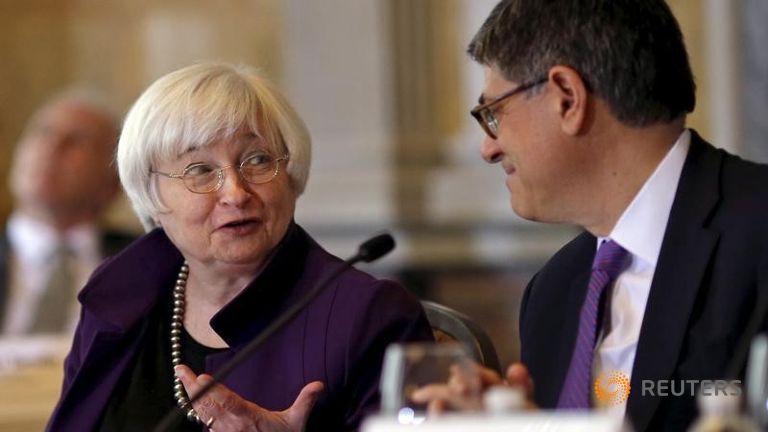-
Tips for becoming a good boxer - November 6, 2020
-
7 expert tips for making your hens night a memorable one - November 6, 2020
-
5 reasons to host your Christmas party on a cruise boat - November 6, 2020
-
What to do when you’re charged with a crime - November 6, 2020
-
Should you get one or multiple dogs? Here’s all you need to know - November 3, 2020
-
A Guide: How to Build Your Very Own Magic Mirror - February 14, 2019
-
Our Top Inspirational Baseball Stars - November 24, 2018
-
Five Tech Tools That Will Help You Turn Your Blog into a Business - November 24, 2018
-
How to Indulge on Vacation without Expanding Your Waist - November 9, 2018
-
5 Strategies for Businesses to Appeal to Today’s Increasingly Mobile-Crazed Customers - November 9, 2018
U.S. budget deficit drops to 2.5-pct in 2015; lowest since 2007
It represents a decrease of 44 billion United States dollars, or 9 percent, from the prior year and as a percentage of GDP, the deficit fell to 2.5 percent, down from 2.8 percent in 2014. The deficit is the smallest of Barack Obama’s presidency and the lowest since 2007 in both dollar terms and as a percentage of gross domestic product.
Advertisement
Overall receipts were up 8% compared to fiscal 2014, to a total of $3.2 trillion.
The amount the government raised in receipts rose by eight per cent from a year ago, to $3.25 trillion, which the Treasury said was a result of “a stronger economy”, as wage growth picked up and increased income tax receipts. Corporate receipts climbed on growth in taxable profits.
Spending was higher mainly on entitlement programs such as Social Security, Medicare and Medicaid, and Obamacare.
The latest figures coincide with intensifying budget battles in Washington.
The economic data comes on the same day that Treasury Secretary Jack Lew – George Osborne’s American counterpart – told Congress that the U.S. could exhaust its borrowing capacity by November 3, two days earlier than was previously estimated. Obama says he won’t negotiate over the borrowing limit.
The Obama administration said continued progress on the deficit was an argument to return to pre-2012 spending levels.
A few Republicans oppose a condition-free increase in the debt limit, but outgoing House Speaker John Boehner has pledged not to let the US default on its obligations. The fiscal year ended September 30. The Congressional Budget Office warns that “the long-term outlook for the federal budget has worsened dramatically over the past several years” because of the recession, an aging population and increasing health care costs.
Advertisement
“We should reform our unsustainable fiscal trajectory when times are relatively good – the task will only get harder with time”, said Maya MacGuineas, who runs the bipartisan Committee for a Responsible Federal Budget.





























